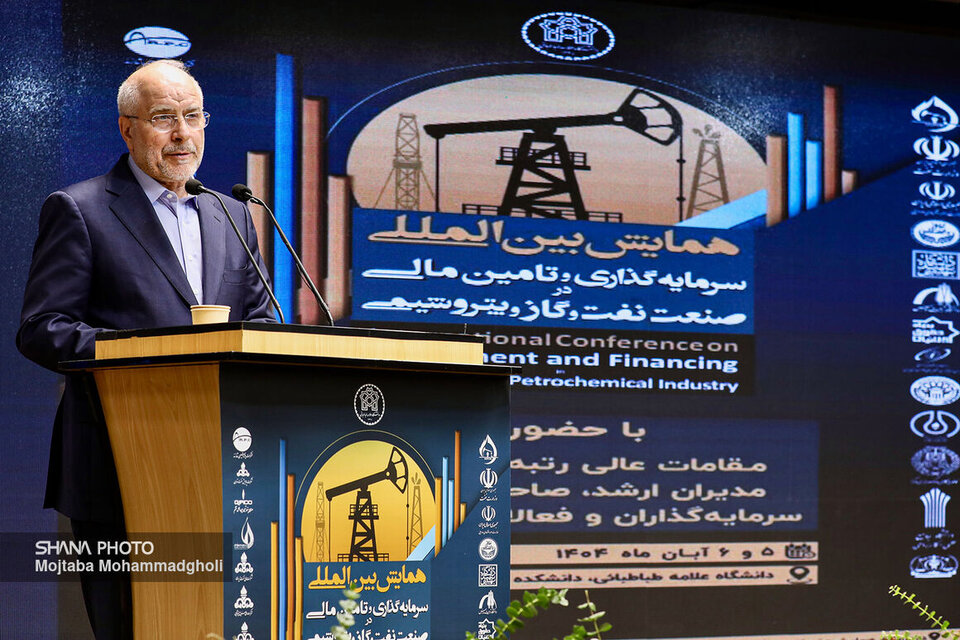“Price correction is neither the only path nor the first step. In this process, public welfare must remain a priority,” Qalibaf said at the International Conference on Investment and Financing in the Oil, Gas, and Petrochemical Industries.
Qalibaf said that since the beginning of the 11th Parliament, lawmakers have focused on establishing the legal groundwork for an “economic leap based on a people-centered economy.” He noted that Parliament has so far advanced and approved 21 key laws to improve the country’s economic structure.
He also highlighted inefficiencies in the legislative system, noting that of Iran’s 12,524 existing laws, roughly two-thirds are outdated or contradictory and will be repealed in this parliamentary term.
Energy Reform as the Nation’s Largest Investment Source
The speaker emphasized that both consumers and producers are integral to energy reform, but changes must start with consumption. “Price adjustment is neither the beginning nor the end of reform. The process must ensure that the first and direct beneficiaries are the people,” he said.
He added that upcoming opportunities are divided into risky and risk-free categories, and energy reform—particularly in consumption—represents a high-risk area that must be approached through collective wisdom and active public participation.
“Reforming the energy sector is the country’s largest source of potential investment and transformation, yet we are losing it,” Qalibaf said. “Today, wasteful energy use—what I call ‘raw burning’—is as damaging as crude exports. Five years ago, the government’s revenue from mining was 6 trillion tomans, while the diesel subsidies for those same mines amounted to 40 trillion tomans. Such management requires no skill; leaving things as they are might even yield better results.”
He added that Iran’s “real imbalance lies not in energy, but in management,” calling for a shift from a consumption-driven to a future-oriented economy. “The defining feature of the Seventh Development Plan is its problem-solving approach. Unless we recognize challenges as real issues, we cannot address them,” he said.
Seventh Plan Described as Iran’s Sole National Covenant
Qalibaf said the Seventh Development Plan must be implemented with precision. “If mistakes are found in legislation or better proposals arise, we will amend the plan in Parliament,” he said. “Some first-year goals may need revision or postponement, but we will hold the government accountable for unfulfilled actions, as the Seventh Plan is our sole national covenant.”
He also noted that the domestic capital market, valued at roughly $100 billion, cannot single-handedly address financing needs in the oil, gas, and petrochemical sectors.
Qalibaf stressed that the Seventh Development Plan’s Article 5 underscores a people-centered economy, and under Article 15(b), private-sector participation is encouraged in all new oil and gas projects.
“The private sector is ready to invest in the oil industry, but bureaucracy and slow decision-making have held it back,” he said. “These obstacles must be removed so that private enterprise can play an active role in national production and development.”
According to the plan, the private sector is expected to produce 5% of Iran’s oil output and 10% of its gas output. “If we accept that the root of our economic problems lies in excessive state control, many challenges will naturally be resolved,” Qalibaf said.


Your Comment